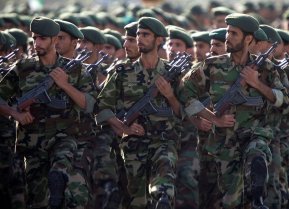How Biden Can Overcome Iran’s Maximum Pressure
Iran must see that America’s pursuit of nuclear negotiations will not inhibit what we do to counter their threatening, unacceptable actions in the region.
The Trump administration proved that the banking and private sector internationally will heed the threat of sanctions on them for doing business or investing in Iran. That said, there is a two-fold problem; during the time it takes to negotiate a follow-on agreement to the JCPOA with the nuclear-related sanctions lifted, the Iranians will feel free again to engage in destabilizing actions throughout the region. Moreover, even afterwards, they may wonder whether we will risk the new and improved nuclear deal for the sake of what the Iranians are doing in the Middle East.
Thus, the Biden administration also needs to signal to the Iranians that we will compete with them in the region. The Iranians must understand that, working with our partners, we will raise the price to them of engaging in aggressive behaviors throughout the Middle East. They must see that our pursuit of nuclear negotiations will not inhibit what we do to counter their threatening, unacceptable actions in the region. Much like when former Israeli prime minister Yitzhak Rabin declared that Israel would pursue peace as if there was no terror and fight terror as if there were no peace, we would negotiate on the Iran nuclear program and at the same time actively counter the Iranians in the region. Such a parallel approach mirrors exactly what the Iranians do in practice. To demonstrate our readiness to compete, the Biden administration could take a number of operational steps, to include:
First, increasing our support for the Iraqi military and mobilizing more material support for the Iraqi government from the Saudis and Emirates;
Second, exposing what the Iranians continue to spend in Syria, a point of neuralgia with Iran’s public given their economic pain;
Third, backing Israeli military strikes in Syria that stop Iran’s transfer of weapons and local production of precision guidance capabilities for the rockets it provides to Hezbollah and other groups;
Fourth, developing an integrated missile defense network that draws together Israel and the Gulf states to blunt Iran’s ballistic missile threat;
Fifth, providing additional means to help the Saudis better defend against cruise missile and drone attacks;
Sixth, conducting contingency planning and formulating options with the Arab states and Israel to counter Iran’s Shia militia proxies;
Seventh, promoting actively the normalization process between Arab states and Israel, fostering a stronger coalition against Iran’s coercive reach.
Taking these and other steps could reassure our Middle East partners and might not only deter the Iranians but give them a reason to consider de-escalation in the region. Any strategy toward Iran must raise the costs to the Islamic Republic—politically, economically, and militarily—even as it offers it a diplomatic way out.
Ambassador Dennis Ross is counselor and William Davidson Distinguished Fellow at The Washington Institute for Near East Policy and teaches at Georgetown University’s Center for Jewish Civilization. Ambassador Ross’s distinguished diplomatic career includes service as special assistant to President Barack Obama and National Security Council senior director for the Central Region, special advisor to Secretary of State Hillary Rodham Clinton, Middle East Envoy to President Bill Clinton, and Director of Policy Planning for President George H.W. Bush.
Image: Reuters.


